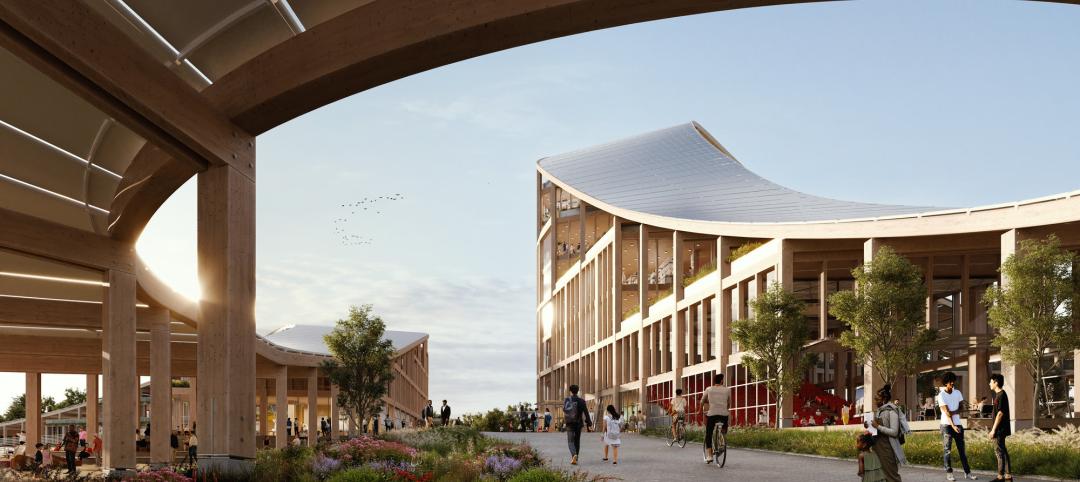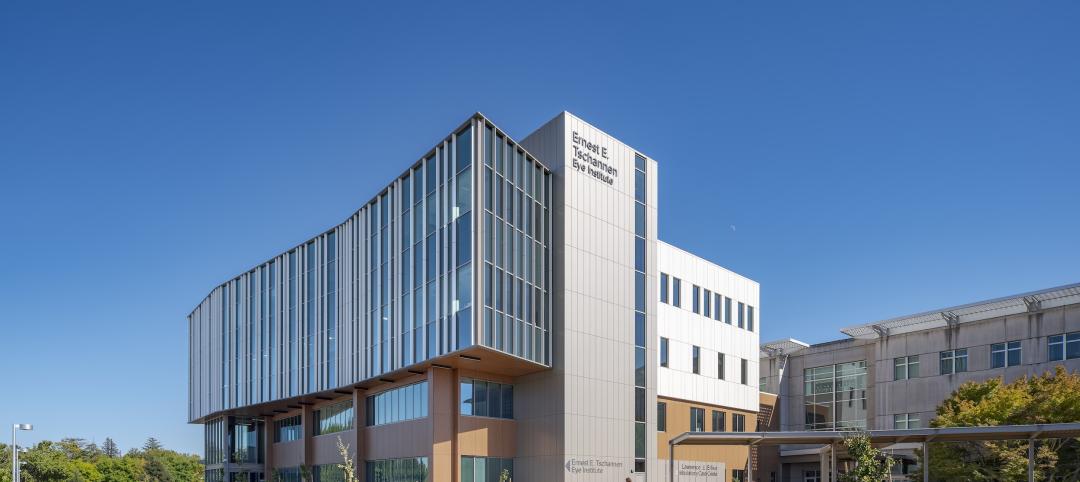The construction industry continues to tackle the challenges of rising construction materials costs, a skilled labor shortage and overall lack of productivity improvements, offering an expansive opportunity for disruption. According to the newly released JLL research report, “The State of Construction Technology,” Silicon Valley investors are stepping in to seize that opportunity. Venture capital funds are funneling unprecedented levels of cash into Construction Technology startups’ pockets.
In the first half of 2018, venture capital firms invested $1.05 billion in global construction tech startups, setting a record high. The 2018 investment volume is already up nearly 30 percent over the 2017 total, with six months still remaining in the year. To date, the Construction Technology sector has found three Unicorns—startups valued at more than $1 billion—in Katerra, Procore and Uptake.
“The construction sector is on the verge of major disruption as tech start-ups tackle head-on the industry’s biggest pressure points,” says Todd Burns, President, Project and Development Services, JLL. “These startups can provide technology that helps deliver projects faster, cheaper and with fewer resources than ever before, effectively addressing the existing challenges in the industry.”
Emerging technology is opening a significant opportunity for venture capitalists and construction executives. JLL recognized this opportunity early, and last year brought on two Silicon Valley veterans to launch JLL Spark, a global business that identifies and delivers new technology-driven real estate service offerings, including a $100 million global venture fund.
JLL’s research uncovered three primary focus areas of construction tech startups:
1. Collaboration software. Considering that dozens of professionals can be working on a given construction project at the same time, leveraging cloud-based software to optimize the workflow could profoundly improve collaboration and impact the bottom line. Front-runners such as Procore Technologies, PlanGrid, Clarizen and Flux Factory are utilizing cloud capabilities, mobile platforms and dedicated design software to enable collaboration.
2. Offsite construction. As skilled construction labor becomes harder to find and general competition for construction inputs heats up, offsite construction startups are championing a different approach to how buildings are built: building component manufacturing. Offsite manufacturing and delivery of finalized components to the construction site equals shorter assembly time and more centralized production to help offset the labor pinch and rising costs. Industry leaders include Katerra, Blu Homes and Project Frog.
3. Big data and artificial intelligence (AI). From materials delivery to equipment maintenance, predictive data and automation tools can collect data on nearly every aspect of a construction project, resulting in data pools at risk of going to waste. Armed with big data and AI software, construction teams can make more informed business decisions to save time and money by extending the life of expensive equipment, reducing worksite risk and automating simple business processes. Top startups in this area include Uptake Technologies, Flux Factory and SmartEquip.
Since 2009, investors have closed 478 Construction Technology funding deals totaling $4.34 billion, underscoring the continued volume of construction projects and the recent urgency to innovate and offset industry costs. The huge bump in Construction Technology investment in 2018 is hopeful proof of an impending surge of technology and hardware marvels, promising to optimize the industry.
Related Stories
Resiliency | Jul 27, 2023
'Underground climate change' can damage building foundations, civil infrastructure
A phenomenon known as “underground climate change” can lead to damage of building foundations and civil infrastructure, according to a researcher at Northwestern University. When the ground gets hotter, it can expand and contract, causing foundations to move and sometimes crack.
Sponsored | Fire and Life Safety | Jul 12, 2023
Fire safety considerations for cantilevered buildings [AIA course]
Bold cantilevered designs are prevalent today, as developers and architects strive to maximize space, views, and natural light in buildings. Cantilevered structures, however, present a host of challenges for building teams, according to José R. Rivera, PE, Associate Principal and Director of Plumbing and Fire Protection with Lilker.
Apartments | Jun 27, 2023
Dallas high-rise multifamily tower is first in state to receive WELL Gold certification
HALL Arts Residences, 28-story luxury residential high-rise in the Dallas Arts District, recently became the first high-rise multifamily tower in Texas to receive WELL Gold Certification, a designation issued by the International WELL Building Institute. The HKS-designed condominium tower was designed with numerous wellness details.
Industry Research | May 22, 2023
2023 High Growth Study shares tips for finding success in uncertain times
Lee Frederiksen, Managing Partner, Hinge, reveals key takeaways from the firm's recent High Growth study.
Mass Timber | May 1, 2023
SOM designs mass timber climate solutions center on Governors Island, anchored by Stony Brook University
Governors Island in New York Harbor will be home to a new climate-solutions center called The New York Climate Exchange. Designed by Skidmore, Owings & Merrill (SOM), The Exchange will develop and deploy solutions to the global climate crisis while also acting as a regional hub for the green economy. New York’s Stony Brook University will serve as the center’s anchor institution.
Green | Apr 18, 2023
USGBC and IWBI unveil streamlined certification pathway for LEED and WELL green building programs
The U.S. Green Building Council, Green Business Certification Inc., and the International WELL Building Institute released a streamlined process for projects pursuing certifications for the LEED green building rating system and the WELL Building Standard. The new protocol simplifies documentation for projects that are pursuing both certifications at the same time or that have already earned one certification and are looking to add the other.
Healthcare Facilities | Mar 26, 2023
UC Davis Health opens new eye institute building for eye care, research, and training
UC Davis Health recently marked the opening of the new Ernest E. Tschannen Eye Institute Building and the expansion of the Ambulatory Care Center (ACC). Located in Sacramento, Calif., the Eye Center provides eye care, vision research, and training for specialists and investigators. With the new building, the Eye Center’s vision scientists can increase capacity for clinical trials by 50%.
Multifamily Housing | Mar 24, 2023
Average size of new apartments dropped sharply in 2022
The average size of new apartments in 2022 dropped sharply in 2022, as tracked by RentCafe. Across the U.S., the average new apartment size was 887 sf, down 30 sf from 2021, which was the largest year-over-year decrease.
Transportation & Parking Facilities | Mar 23, 2023
Amsterdam debuts underwater bicycle parking facility that can accommodate over 4,000 bikes
In February, Amsterdam saw the opening of a new underwater bicycle parking facility. Located in the heart of the city—next to Amsterdam Central Station and under the river IJ (Amsterdam’s waterfront)—the facility, dubbed IJboulevard, has parking spots for over 4,000 bicycles, freeing up space on the street.
Geothermal Technology | Mar 22, 2023
Lendlease secures grants for New York’s largest geothermal residential building
Lendlease and joint venture partner Aware Super, one of Australia’s largest superannuation funds, have acquired $4 million in support from the New York State Energy Research and Development Authority to build a geoexchange system at 1 Java Street in Brooklyn. Once completed, the all-electric property will be the largest residential project in New York State to use a geothermal heat exchange system.

















